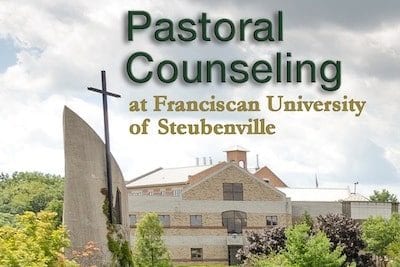“Do not wait for leaders; do it alone, person to person.”
With the many thoughts and images the term “pastoral counseling” evokes, it is not difficult to imagine why the disciple is so difficult to define. Yet, with a culturally, historically, and religiously rich word such as “pastoral,” surely a counseling profession claiming the title must also contain a certain depth. To simply make a literal definition of the term and label a pastoral counselor as a pastor who is also a counselor underestimates and oversimplifies the potential of the profession. While my own understanding of pastoral counseling is in the beginning stages of development, I believe that pastoral counseling is distinguishable from other specialties of counseling in a number of ways.
One of the unique specialties I understand of pastoral counseling is the ability to interactively speak both the language of psychology and theology. The bilingual pastoral counselor is able to conceptualize the client’s biopsychosocial distress both in terms of clinical psychotherapy but also in the theological understanding of a particular religious tradition. In addition to conceptualization, the pastoral counselor’s bilingualism also impacts the direction of treatment. The pastoral counselor, to my understanding, is also able to weave together a treatment plan using evidenced based practices that are adapted to fit within the unique religious and/or spiritual worldview of the client. The pastoral counselor is able to navigate the client’s worldview with careful attention to the religious and/or spiritual needs of the client, which may be distinct or significantly overlap within the client’s worldview. This bilingualism can allow pastoral counselors and their clients to speak of issues that may not be addressed in typical counseling such as questions of morality, virtues, and religious teachings
In addition to the distinct language spoken by the pastoral counselor is the greater mission of the profession. While all counselors seek the holistic wellness of the client, the pastoral counselor is unique in how they define wellness, how they foster that wellness, and to what greater purpose they endeavor to guide their clients to wellness. My understanding of how a pastoral counselor defines wellness is a spiritual wholeness which can uniquely be understood by each client within their particular worldview. From a Christian tradition, for instance, spiritual wholeness may look like a balanced, integrated knowing of self, community, and God. Another religious tradition, such as Yoga, may define spiritual wholeness as union in all aspects of life. The pastoral process of guiding a client to whatever wholeness they seek is also unique, I believe. While a mental health counselor may strive to treat symptoms, a pastoral counselor is concerned with the healing and restoration of the whole person. These two elements of the pastoral counseling process distinguish it as a profession in my understanding as it calls to a deeper understanding of the person as simultaneously a body and soul with both physical and metaphysical needs. It requires a leap of faith, so to speak, for pastoral counselors to attend in counseling to both what can be empirically studied and also the Mystery of the person. The purpose for seeking this wholeness in the client is, I believe for the pastoral counselor, a transcendent one. While still adhering to the earthly ethical standards of the profession, the pastoral counselor also works for the greater mission of serving God which grounds the pastoral counselor in a transcendental sense of moral urgency to care for the soul of the client. To summarize, it is the mission of the pastoral counselor, I believe, to be sensitive to understanding the client’s worldview and to integrate spiritual, religious, and psychotherapeutic elements in the therapy process in order to facilitate genuine healing and restoration.








